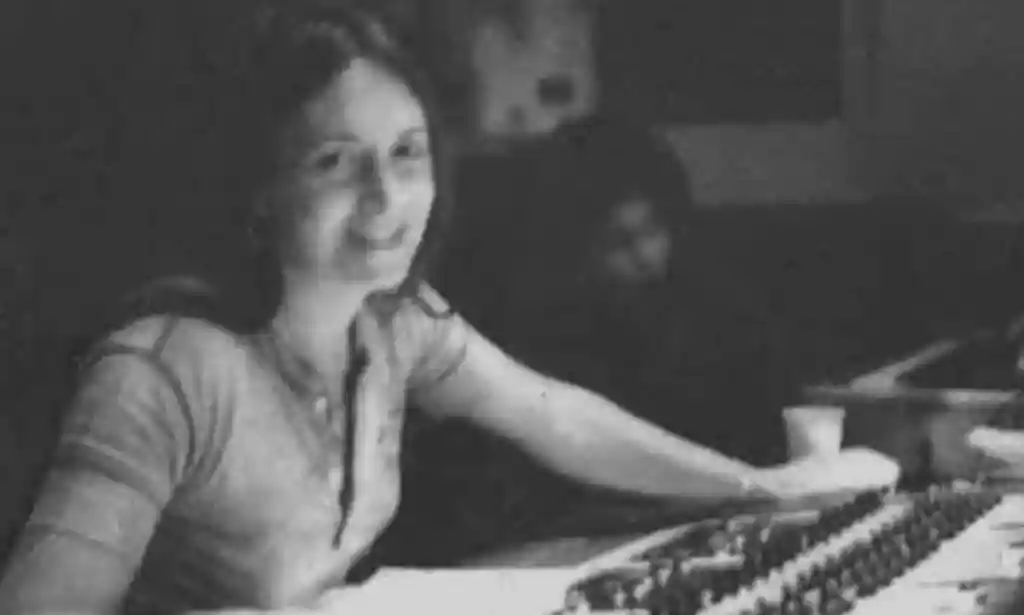First trans woman in National Women’s Hall of Fame on ‘striking back’ at bigots

Activist and artist Sandy Stone was the first out trans woman to be inducted into the US National Women’s Hall of Fame. (National Women’s Hall of Fame)
Allucquére Rosanne Stone, better known as Sandy, is no stranger to making history. Her work is considered a founding text of the academic discipline of transgender studies.
On 5 March, she went down in history again – as the first out trans woman to be inducted into the US National Women’s Hall of Fame.
It was as “super thrilling” and “emotionally loaded” as it was defining, Sandy told PinkNews. Having a moment at the podium when she could “say something that can mean something for a lot of people is rare” so she wanted to take advantage of it.
“One of the major obstacles I had with this was saying: ‘Here we are. It’s time to celebrate’, knowing there are people out there being stalked and killed for being trans, living in perpetual fear, having their parents spitting on them or whatever else is going on,” she said.
“Then, here I am up on stage celebrating. That doesn’t make sense. That’s completely dissonant.
“The first part of the speech was celebratory in a general way. Then, I tried to speak to the people who are being hurt, stalked, killed, spat on, out of touch with their families and thrown out by their relatives.
“The only way I could think of doing that was by saying what worked for me.
“Saying this is what you do even at the same time knowing that there [are] going to be certain people who are going to say: ‘That’s f**ked up. I can’t do that because that will get me killed.”
During her speech, Sandy urged her “sisters”, who “feel lost in a vast and hostile world”, to “speak as if you were speaking [to] your community”. Then, “as sure as the day is long”, the community will find them.
Her words are a throwback to her larger-than-life advocacy and experiences confronting those who wish to silence, debate and even destroy transgender voices.
She’s an academic, media theorist, author and artist with roots in Olivia Records, a legendary queer music collective and leading feminist organisation of the 1970s.
Sandy’s role made her a target for anti-trans activists such as lesbian feminist and academic Janice Raymond, the author of The Transsexual Empire in which she appeared to question what she called the “normalisation” of gender-affirming treatment and surgeries. She maintained, in the 1979 work, that the notion of transgender identity was based on the “patriarchal myths [of] male mothering [and] making of woman according to man’s image”. She claimed this was being done “to colonise feminist identification, culture, politics and sexuality.”
Sandy was specifically mentioned in Raymond’s work, resulting, some believe, in increased harassment directed towards her and the collective.

It got to the point where she was forced to hide under a table after a “radical, transphobic separatist group” stormed a concert.
Having had enough of the anti-trans campaign, Sandy wrote a rebuttal, The Empire Strikes Back: A Posttranssexual Manifesto. The essay examined how trans people have been viewed historically, as well as dismantling medical research and theory critical of trans experiences.
The work is widely considered to be a founding document of trans studies, and Sandy became a crucial element in academic disciplines examining trans lives.
Despite the personal attacks, she remains undeterred.
She’s watched several anti-trans pundits “evolve or not evolve over a long period of years”. It’s taught her a lot about the power of knowing who to reach out to and the right time is to “strike back” at those who want to “erase” trans lives.
“A while ago, I said something like, because they are members of the human race, they’re fellow sentient beings, we owe them a duty of care,” she said.
“But that duty of care ends once they start trying to kill us. A lot of what they do – although they may not openly advocate violence – is about killing us. Erasing us is the same as killing us.
“When that starts, I stop thinking I have any duty of care. I have a duty to strike back as hard as I can.”
News about the trans community is often dominated by efforts to restrict access to life-saving healthcare, while a record number of anti-trans bills have been introduced across the US and fatal violence against the community is at an all-time high.
But across the US, trans-led groups are creating spaces for their communities to find safety and joy.
Community-led organisations are dear to Sandy. She highlighted how these were “very big” in the US in the 40s and 50s when “institutions were not doing anything for us” so “we needed to do something”.
She’s seen a modern resurgence of that and encouraged trans people to build their own structure when they can’t find it anywhere else.
“F**k the structure. Make your structure. Build community. Build solidarity. Help each other,” she said.
“You can put together networks. At this point, what you need to do medically isn’t a secret any more. It doesn’t belong to some occult group of doctors in nowhere, California. Everybody knows roughly what you need to do.
“Get underground networks going. Get those drugs. Get the materials. Get the skills.
“Get the schooling. Get the knowledge you need. Share it around the community. Say ‘to hell’ with the traditional medical structure of the legal sector. Just do it.”
How did this story make you feel?

